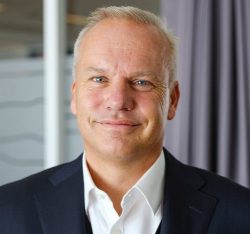Norway’s state oil company Equinor has followed up its worst, scandal-plagued year ever by posting its worst quarterly results ever as well, along with a sharp decline in profits for all of 2020. Heavy losses especially on international operations, many of which had been kept under wraps, ended up even larger than analysts had expected.

It wasn’t a great start for Equinor’s new chief executive Anders Opedal, who was delivering his first quarterly report since assuming his post late last year. It can, however, give him a chance to wipe the slate clean from ill-fated investments outside Norway and start fresh.
The Corona pandemic and low oil prices during most of last year also caused problems for Equinor, but it was the losses especially on its US portfolio that have generated the most criticism in Norway. Former CEO Helge Lund’s overly ambitious effort to make the former Statoil an international player, and his successor Eldar Sætre’s failed efforts to make them work left Opedal having to write much of them off.
It ended with fourth-quarter losses after tax of NOK 4.6 billion (USD 554 million). Newspaper Dagens Næringsliv (DN), which exposed Equinor’s huge losses in the US last year, quickly noted that Norway’s largest company’s results haven’t been so bad since the third quarter of 2016, in the midst of the last oil price collapse, when they were half as much at USD 261 million.
Analysts had expected quarterly losses of USD 409 million, making those reported on Wednesday worse then expected. The company could report profits for the entire year, thanks largely to reliably profitable offshore operations in Norway’s own North Sea, but they were down by 27.3 percent.

Opedal himself attributed the poor results to “market turmoil” throughout the year, adding hopefully that stronger cost control and “capital discipline” now help make the company “well-positioned for value creation and strong cash flow” this year and in the years to come.
In its own list of what characterized 2020, Equinor didn’t mention the uproar over US losses or the ministerial criticism and Parliamentary hearings that ensued. More hearings loom later this month. Some serious accidents and harsh criticism from Norwegian environmental authorities weren’t on the list either. Equinor itself preferred to highlight what it claims was “strong operational performance during extraordinary circumstanes, positive cash flow in a low-price environment” and plans to “strengthen financial resilience” and pursue a transition towards more emphasis on renewable energy.
See Equinor’s own report on its results here (exernal link).
The company had announced earlier this week that it’s selling off its ownership stakes in the Bakken field in the US for USD 900 million. It was one of the major problems for Equinor in the US, and DN has reported earlier that the entire US portfolio is under evaluation. Equinor has also recently written off most of its investment in Tanzania, where it had hoped to develop offshore gas projects, while questions keep rising about operations in Angola and Brazil.
Now Equinor is under pressure, also from its own board, to rein in foreign investments, concentrate on profitable projects at home and get more serious about restructuring the company to make it more climate-friendly. That means more investment in renewable energy, where Equinor is already active in offshore wind projects. The company remains under criticism for oil exploration projects in the Arctic but has also made more oil strikes in the North Sea where infrastructure is already available and extraction costs lower.
newsinenglish.no/Nina Berglund

